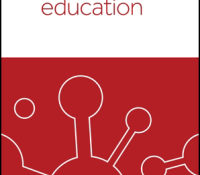eric.ed.gov har udgivet: This study ranked constructs articulated by Childress and Rhodes (2008) and identified the key indicators for each construct as a starting point to explore what should be included on an instrument to measure the engineering design process and outcomes of students in high schools that use the PLTW and EbDTM curricula in Idaho. A case-study design was used. Data were collected in two stages. In the first stage, a content analysis was conducted for PLTW and EbDTM curricula to identify the indicators that are associated with the six constructs articulated by Childress and Rhodes (2008). In the second stage, the constructs and key indicators or concepts were placed on a survey and sent to experts for them to rate their importance for assessment and their difficulty to… Continue Reading →
Like this:
Like Loading...
eric.ed.gov har udgivet: A project was designed to evaluate TEAM, a math anxiety reduction program for undergraduate students preparing to be elementary school teachers. The program consisted of two main components: (1) instruction intended to improve problem solving skills using the areas of patterns, probability, measurement, approximation, and estimation; and (2) activities designed to reduce math anxiety and to increase confidence in mathematics. The outcome evaluation for a two-year materials development project consisted of replications of small-scale trials of the materials. Outcome measures included both attitudinal and math concept instruments. Future evaluation research in this or similar programs can concentrate in several areas arising from the development and evaluation of the TEAM materials and course. Areas such as the instructional approach, the integration of testing and teaching, teacher confidence and… Continue Reading →
Like this:
Like Loading...

tandfonline.com har udgivet en rapport under søgningen “Teacher Education Mathematics”: Abstract Formulae display:?Mathematical formulae have been encoded as MathML and are displayed in this HTML version using MathJax in order to improve their display. Uncheck the box to turn MathJax off. This feature requires Javascript. Click on a formula to zoom. Abstract The advancements in technological innovations have had a substantial impact on the Internet infrastructure, Web technology, and the usefulness of e-learning systems. This requires a discrete initiative to exploit the full capabilities of technological innovation to improve the functional characteristics of e-learning systems, the ensuing benefits, and to sustain educational challenges. A context-based model that incorporates explicit and widely accepted determinants of information systems success, technology acceptance, e-learning success models, and technological innovation has been developed. Empirically, the… Continue Reading →
Like this:
Like Loading...
eric.ed.gov har udgivet: School gardens programs and garden-based education are positioned to become fixtures in educational institutions given recent trends and the national interest in gardens at school sites. Agricultural education professionals have integrated school gardens into core science, social studies, math, and language arts courses as well as agricultural education programs for elementary, middle, and high school curriculum. The literature shows that while there are specific curriculum links being made, school garden programs elicit a multitude of benefits in addition to enhancing student performance. Although the literature outlines an extensive set of impacts that may result from a school garden program, they are grounded in a specific case or intervention. Those who are planning for and evaluating school garden programs are left to make connections based on case study… Continue Reading →
Like this:
Like Loading...
eric.ed.gov har udgivet: One of the goals of afterschool programming is to empower students by increasing their sense of autonomy and giving them room to chart their own course of discovery. Long before STEM (science, technology, engineering, and math) became part of the educational vernacular, afterschool practitioners were using science content and scientific practices as tools for youth empowerment. For that empowerment to happen, the youth themselves have to connect to the content and experience self-actualization. As educators work to increase their skills and knowledge to present the best experience for their students, an unexpected outcome can be an increase in their own self-efficacy and STEM identity. Link til kilde
Like this:
Like Loading...
